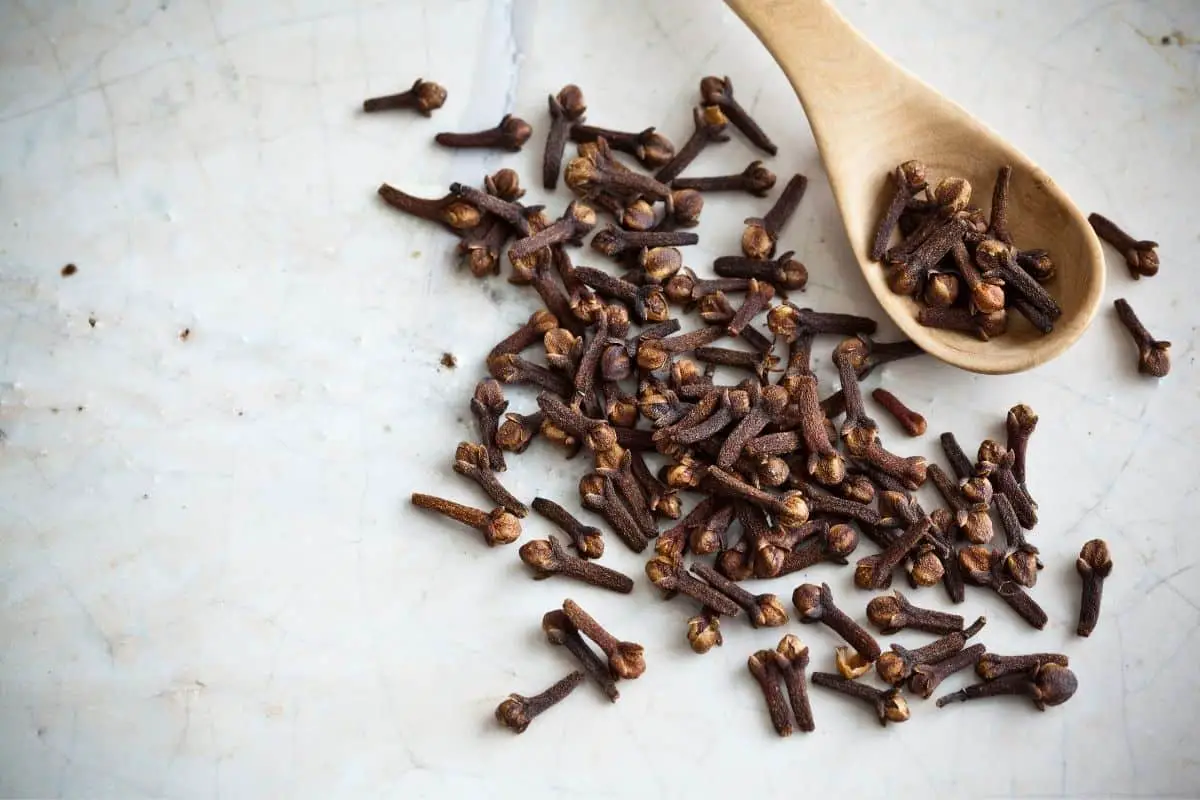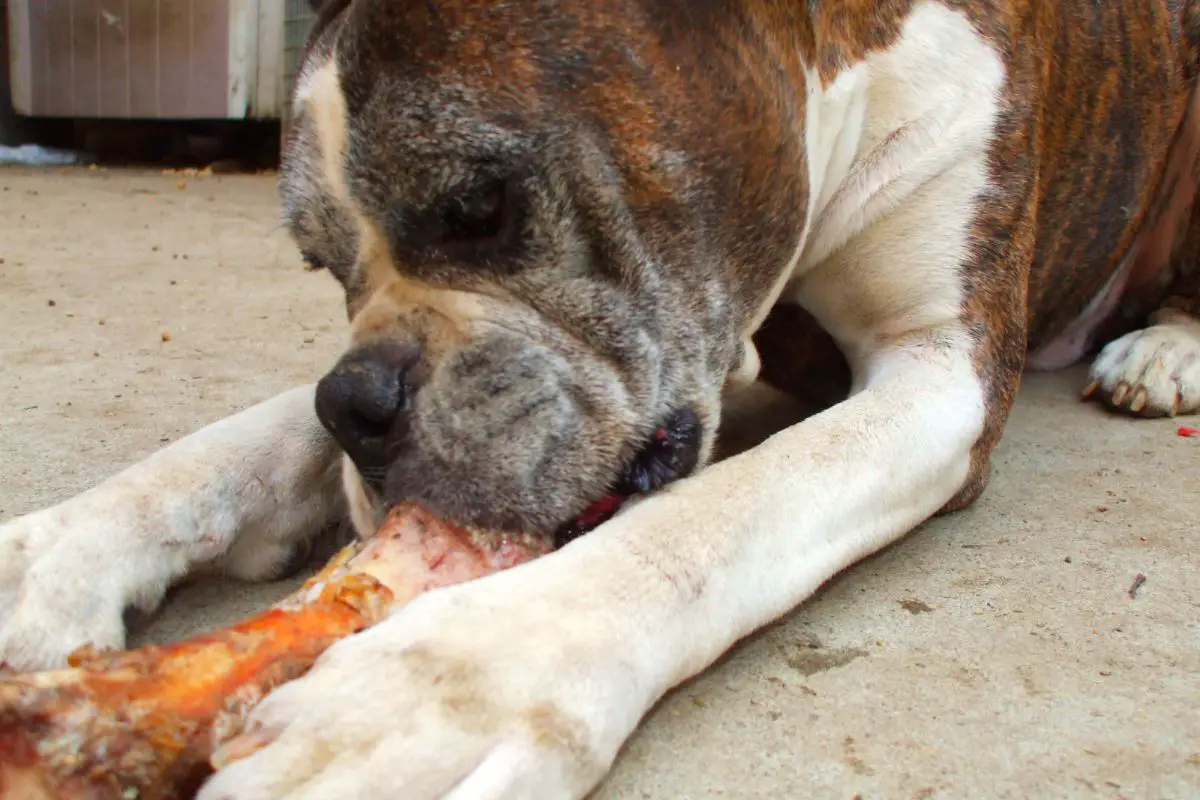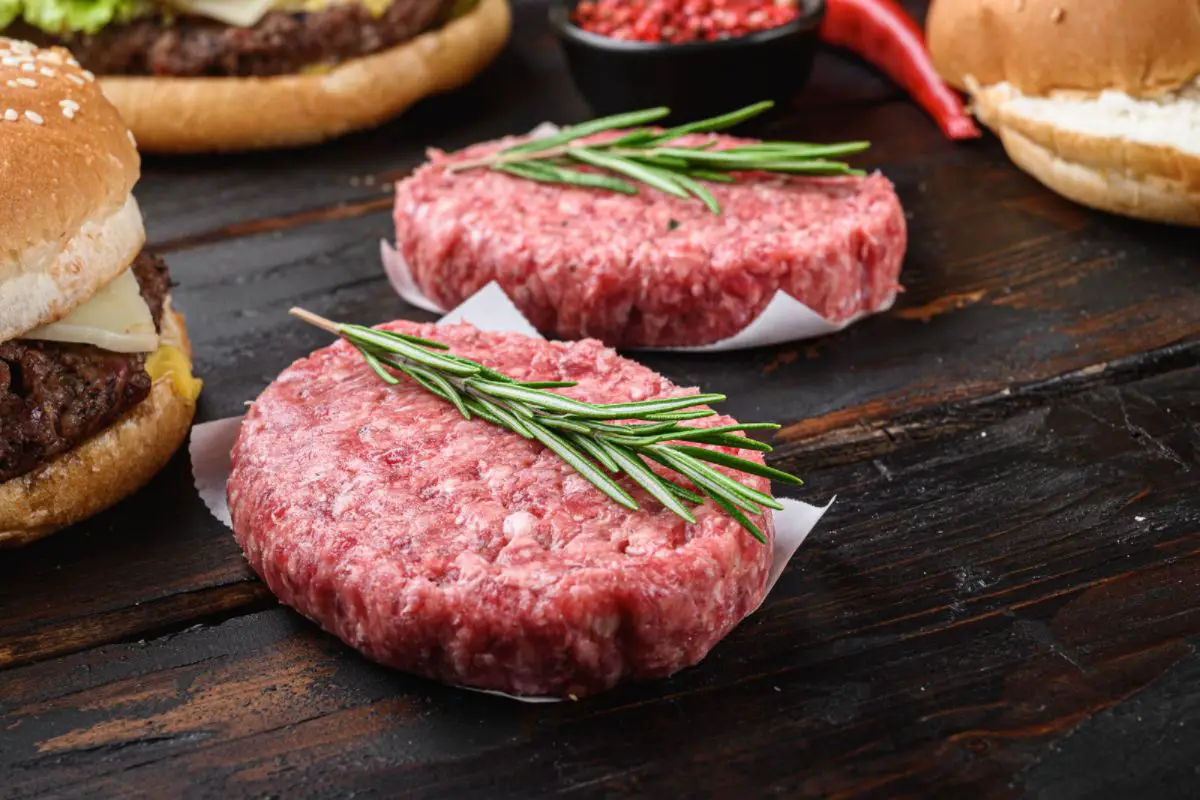This post contains affiliate links.
Every pet parent wants to give their four-legged family member the best possible life, which often begins with providing a healthy diet. But choosing non-toxic foods can be challenging, especially if you’re unfamiliar with ingredients that are toxic to dogs. If you’re wondering if dogs can safely eat cloves, you’re not alone.
Dogs can eat small amounts of cloves, but large doses can be fatal. Cloves contain a compound called eugenol, which is moderately toxic to dogs. If your dog eats cloves, it’s crucial to keep watch for signs of poisoning and contact a veterinarian. Vomiting, diarrhea, and lethargy are warning signs.
To ensure your furry family member stays in tip-top shape, you’ll want to feed them only the best meals and ingredients. Cloves aren’t nearly as toxic as other substances, but they’re also not entirely safe. Let’s discover why you’ll want to limit your pup’s exposure to this spice.
Table of Contents
Can Dogs Eat Cloves?
Many pet parents might assume that their pup’s primary nutritional needs revolve around protein, but dogs have complex dietary needs. Their health depends on a wide variety of macronutrients and micronutrients, just like humans.
But some of our favorite human-friendly foods can be toxic to dogs. For example, many spices that make our taste buds tingle with joy can cause severe digestive upset in our four-legged friends. Cloves are no exception.
According to the McCormick Science Institute (MSI), cloves are the dried flowers of the clove tree (Syzygium aromaticum). They’re used to create several popular sauces and spice mixes, including Worcestershire sauce, ketchup, and pumpkin spice.
Dogs can safely eat a small amount of cloves without suffering ill effects. This equates to about 0.2mg per kg of bodyweight. So, a dog that weighs about 30lbs (13.6kg) can eat about 2.5mg (.04 grains) of cloves without experiencing any signs of poisoning or discomfort.
However, large amounts of cloves (or clove essential oil) can be deadly to dogs. That’s because cloves contain a chemical compound called eugenol, a substance known to produce adverse effects in dogs and cats.
Are Cloves Toxic to Dogs?
As we mentioned previously, dogs can eat small amounts of cloves without suffering any severe side effects. However, that doesn’t mean that cloves aren’t toxic to dogs.
Eugenol, one of the primary compounds found in cloves, can be toxic to most mammals when consumed in large amounts. Even humans can suffer ill effects after eating too many cloves, primarily because eugenol can be challenging for the liver and kidneys to process.
Cloves are toxic to dogs if consumed in large amounts. As little as 2.5mg (.04 grains) per kg of body weight is enough to induce moderate-level poisoning symptoms in dogs. However, 5mg or more per kg of body weight can be fatal.
Fortunately, many of the recipes that utilize cloves only call for minute amounts. However, these tiny bits of dried or powdered cloves can be highly toxic, especially in small dogs. Half a teaspoon of cloves, the typical requirement for pumpkin pie, typically comes to more than 1,000mg (15.4 grains).
That half-a-teaspoon may be enough to poison up to ten 100-lb (45 kg) dogs. As such, pet parents should be cautious when handling cloves. Only a few dropped buds or a spilled teaspoon can be enough to make your dog very sick.
What Should I Do When My Dog Eats Cloves?
If you’ve noticed that your dog has eaten cloves or foods that contain cloves, it’s crucial not to panic. If you begin to panic, your dog will likely pick up on your fear and begin to feel stressed out or anxious.
Depending on your dog’s body size and the number of cloves they’ve ingested, they may be perfectly fine. That said, even a minimal amount of pure powdered or dried cloves can result in vomiting, seizures, or death. As such, you must keep a close eye on them to watch for signs of poisoning.
If you know that your dog has eaten a toxic amount of cloves, you’ll need to seek emergency veterinary care. When it comes to poisoning, the key to recovery is often quick action. The sooner you can rush your pup to a veterinary clinic, the better their chances will be.
Still, you may not have seen how much your dog has eaten, or they may have only consumed a tiny bit of an ingredient containing cloves. For example, your pup might have licked a little Worcestershire sauce or taken a nip of some pumpkin pie. In this case, the cloves are diluted by other ingredients.
Consequently, it might be in your best interest to simply wait and look for troublesome symptoms. After all, emergency visits to the veterinarian can be stressful and expensive. Familiarizing yourself with signs of dog poisoning could help you avoid unneeded emergency visits while keeping your dog healthy.
How To Spot Signs of Dog Poisoning
Keeping your dog safe from poisoning is much like ensuring that your home is toddler-friendly. You’ll need to ensure that your pup cannot get into cupboards where chemicals are stored, as well as be careful about the foods you leave out in the kitchen.
However, accidents do happen, and your dog may occasionally eat something toxic. When this happens, it’s crucial to recognize the signs of poisoning. In addition, seeking immediate veterinary care after an accidental poisoning could save your pup’s life.
Some of the most common signs of poisoning in dogs include:
- Vomiting
- Diarrhea
- Excessive Drooling
- Seizures
- Lethargy
- Pale or Yellow Gums
- Loss of Appetite
If you suspect that your dog has consumed something toxic, contact your veterinarian right away. You might also want to provide fresh water for your dog to drink. However, it’s crucial not to force your dog to drink.
In some cases, water can help flush toxins out of the body. This method is often preferred when dogs have eaten only a small amount of partially toxic substances. A pup that’s eaten a handful of dried cloves, for example, might be fine with a little extra water and some rest.
But if your dog is exhibiting any of the above symptoms or has consumed a large number of toxic substances, immediate veterinary care is necessary. In some cases, your veterinarian may induce vomiting to keep the toxins from spreading to your pup’s kidneys and liver.
If you cannot schedule an emergency visit with your veterinarian, be sure to seek emergency care services nearby. The faster you act, the less likely it is that your dog will suffer the serious, long-term consequences of poisoning.
Everyday Foods That Contain Cloves
In an ideal world, pet parents would never leave food out on the counter or within reach of their dogs. But it’s normal to become forgetful, especially if you live a hectic life or have small children. As such, it might be helpful to familiarize yourself with the common foods that contain cloves.
When you know what dishes contain cloves, you can be sure to either avoid preparing them or to be extra careful with them around the house. For example, pumpkin pies often have a small number of cloves. And while pumpkin won’t harm your pup, the sugar and spices in a pumpkin pie might cause severe digestive upset.
Some of the most common foods that contain cloves include:
- Mulled Wine
- Chai Tea
- Gingerbread
- Pumpkin Pie
Cloves are often added to fruit-based recipes, but they’re also found in some meat dishes. Still, many of the most common meals that contain cloves also contain ingredients that aren’t dog-friendly. As such, avoiding accidental clove poisoning may be easier than preventing unwanted chocolate consumption.
Conclusion
Dogs can safely consume a minimal amount of cloves. However, clove essential oil or dishes that are heavy with cloves can be toxic. Cloves contain a chemical called eugenol. Dogs can process small amounts of eugenol, but high levels can be fatal.
If your dog has consumed a large number of dried cloves or clove essential oil, you’ll want to contact your veterinarian right away. It’s also crucial to keep an eye on your dog and watch for signs of poisoning. In addition, ensuring that you don’t keep clove-based meals out on the counter can help prevent future accidents.
Related Articles
- Can Dogs Eat Doritos? Should They Really?
- Can Dogs Eat Granola? Read This First!
- Can Dogs Eat Poppy Seeds? (Read This First)
- Can Dogs Eat Prunes? Read this First!
- Can Dogs Eat Sauerkraut? (We Find Out)
Sources
- American Gastroenterological Association: Toxicity of the Mucigogue, Eugenol, Administered By Stomach Tube to Dogs
- McCormick Science Institute: Cloves
- National Center for Biotechnology Information: Household Food Items Toxic to Dogs and Cats
- National Center for Biotechnology Information: Some food toxic for pets
- ScienceDirect: Eugenol
- U.S. Food and Drug Administration: Potentially Dangerous Items for Your Pet
Mrdogfood.com is a participant in the Amazon Services LLC Associates Program, an affiliate advertising program designed to provide a means for sites to earn advertising fees by advertising and linking to Amazon.com. We also participate in other affiliate programs which compensate us for referring traffic.





